November 16 stands as one of history’s most eventful days, witnessing the rise and fall of empires, groundbreaking discoveries, and moments that shaped our modern world across centuries of human achievement.

Politics and Government Events on November 16
1907 – Oklahoma Admitted as 46th U.S. State
Indian Territory and Oklahoma Territory merged to form the state of Oklahoma on this historic date. The consolidation created one of America’s largest states by combining two distinct territorial governments.
The new state immediately faced challenges integrating diverse populations and legal systems. Oklahoma’s statehood marked the final chapter in the organization of the American frontier.
1933 – United States Recognizes Soviet Union
The United States and Soviet Union established formal diplomatic relations after sixteen years of non-recognition. President Franklin Roosevelt’s administration sought to normalize relations with the communist nation.
This diplomatic breakthrough occurred during the Great Depression when America needed new trading partners. The recognition would prove crucial as both nations later became allies in World War II.
1988 – Estonia Declares Sovereignty
The Supreme Soviet of the Estonian Soviet Socialist Republic declared Estonia “sovereign” while stopping short of full independence. This bold proclamation challenged Soviet authority during the glasnost period.
Estonian leaders carefully balanced their independence aspirations with practical political realities. The declaration became a crucial step toward Estonia’s eventual independence in 1991.
1988 – Benazir Bhutto Elected Prime Minister
Pakistani voters elected populist candidate Benazir Bhutto as Prime Minister in the country’s first open election in over a decade. Bhutto became the first woman to lead a modern Muslim nation.
Her victory represented a triumph for democratic forces after years of military rule. Bhutto’s election marked a new chapter in Pakistan’s turbulent political history.
1997 – China Releases Wei Jingsheng
After nearly eighteen years of imprisonment, China released pro-democracy dissident Wei Jingsheng from jail for medical reasons. The release came under intense international pressure for human rights improvements.
Wei had become a symbol of China’s democracy movement during his long incarceration. His freedom represented a rare concession by Chinese authorities to global human rights advocates.
Military and Naval History on November 16
1940 – RAF Bombs Hamburg in Retaliation
The Royal Air Force launched a devastating bombing raid on Hamburg in response to the German Luftwaffe’s destruction of Coventry two days earlier. The attack marked an escalation in the strategic bombing campaign.
British commanders sought to demonstrate their ability to strike deep into German territory. The Hamburg raid represented the beginning of sustained Allied bombing operations against German cities.
1940 – Warsaw Ghetto Sealed

Nazi forces closed off the Warsaw Ghetto from the outside world, trapping over 400,000 Jewish residents inside. The sealing marked a horrific milestone in the Holocaust’s systematic persecution.
German authorities implemented brutal living conditions designed to dehumanize the trapped population. The ghetto’s closure would lead to unimaginable suffering and eventual uprising.
1944 – Düren Destroyed by Allied Aircraft
Allied aircraft completely destroyed the German town of Düren in support of the Battle of Hürtgen Forest. The devastating attack eliminated strategic German positions but also killed many civilians.
The bombing demonstrated the Allies’ overwhelming air superiority in the final war phase. Düren’s destruction highlighted the terrible cost of strategic bombing campaigns.
1989 – Jesuit Priests Murdered in El Salvador
El Salvadoran army troops killed six Jesuit priests and two others at Jose Simeon Canas University during the civil war. The massacre shocked the international community and exposed military brutality.
The priests had advocated for peace and social justice in the war-torn nation. Their murders became a symbol of the violence against civilians during El Salvador’s bloody conflict.
Science and Discovery Milestones on November 16
1904 – Fleming Patents Thermionic Valve
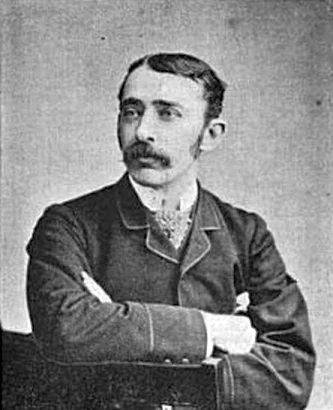
English engineer John Ambrose Fleming received a patent for the thermionic valve, revolutionizing electronics forever. This vacuum tube became the foundation for modern electronic devices.
Fleming’s invention enabled the amplification of electrical signals for the first time. The thermionic valve would power radios, televisions, and early computers for decades.
1938 – LSD First Synthesized
Albert Hofmann first synthesized LSD from ergotamine at Sandoz Laboratories in Basel, Switzerland. This groundbreaking chemical synthesis would later revolutionize neuroscience and psychology research.
Hofmann had no idea of the compound’s psychoactive properties during initial synthesis. The discovery would later spark decades of scientific research and cultural transformation.
1965 – Venera 3 Launched Toward Venus
The Soviet Union launched Venera 3 toward Venus, destined to become the first spacecraft reaching another planet’s surface. This ambitious mission marked a major milestone in space exploration.
Soviet engineers designed the probe to survive Venus’s harsh atmospheric conditions. Venera 3’s success would demonstrate humanity’s ability to explore distant worlds.
1974 – Arecibo Message Transmitted
Scientists broadcast the Arecibo message from Puerto Rico, humanity’s first intentional radio message to extraterrestrial intelligence. The transmission targeted the globular cluster M13 in Hercules.
The message contained basic information about human civilization and Earth’s location. This historic broadcast represented humanity’s first attempt at interstellar communication.
2002 – First SARS Cases Traced
The first cases of the 2002-2004 SARS outbreak were traced to Foshan, Guangdong Province, China. This dangerous respiratory disease would eventually spread globally.
Medical researchers identified the novel coronavirus as the outbreak’s cause. The SARS epidemic would serve as a warning for future pandemic preparedness.
Cultural and Arts Events on November 16
1944 – First Jussi Awards Ceremony

The Jussi Awards, Finland’s premier film award ceremony, was held for the first time at Restaurant Adlon in Helsinki. The event established Finland’s national recognition for cinematic excellence.
Finnish filmmakers gathered to celebrate their industry’s achievements during wartime. The awards would become Finland’s equivalent to the Academy Awards.
1990 – Milli Vanilli Stripped of Grammy
Pop group Milli Vanilli were stripped of their Grammy Award after revelations that session musicians provided all vocals on their album. The scandal shocked the music industry.
The duo’s lip-syncing deception exposed widespread practices in commercial music production. Their Grammy revocation became a watershed moment for musical authenticity.
1992 – Hoxne Hoard Discovered

Metal detectorist Eric Lawes discovered the Hoxne Hoard in Suffolk, England, containing over 15,000 Roman coins and artifacts. The find became one of Britain’s most significant archaeological discoveries.
The hoard provided unprecedented insights into late Roman Britain’s economic conditions. Archaeologists praised Lawes for properly reporting his discovery to authorities.
2004 – Half-Life 2 Released

Half-Life 2 was released, eventually winning 39 Game of the Year awards and being cited as one of the best games ever made. The revolutionary first-person shooter transformed video game storytelling.
Valve Corporation’s masterpiece introduced groundbreaking physics engines and narrative techniques. The game’s success established new standards for interactive entertainment.
Religious and Social Events on November 16
1945 – UNESCO Founded
The United Nations Educational, Scientific and Cultural Organization was established to promote international cooperation through education and culture. UNESCO’s founding represented hope for post-war global unity.
The organization aimed to build lasting peace through intellectual and cultural exchange. UNESCO would become instrumental in preserving world heritage and promoting education.
1958 – National Airlines Flight 967 Explodes
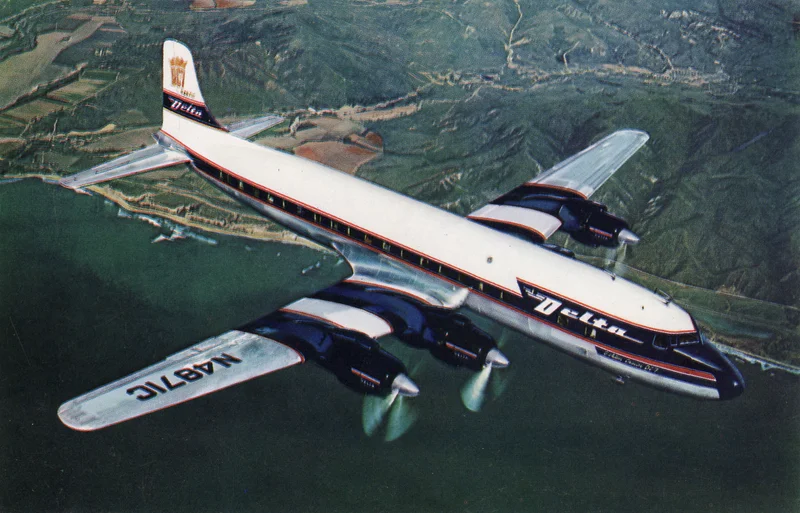
National Airlines Flight 967 exploded in mid-air over the Gulf of Mexico, killing all 42 people aboard. The mysterious disaster sparked extensive investigations into aviation safety.
Investigators suspected sabotage but never definitively determined the explosion’s cause. The tragedy highlighted the need for improved aircraft security measures.
1973 – Skylab 4 Mission Launches
NASA launched Skylab 4 with three astronauts from Cape Canaveral for an 84-day mission. The final Skylab mission would set endurance records for American spaceflight.
The crew conducted extensive scientific experiments in the orbital laboratory. Their long-duration flight provided crucial data for future space station operations.
Business and Economic Events on November 16
1914 – Federal Reserve Bank Opens
The Federal Reserve Bank of the United States officially opened its doors, establishing America’s central banking system. The institution would fundamentally reshape American monetary policy.
The Federal Reserve gained unprecedented power to regulate money supply and interest rates. This centralized banking system would guide America through economic crises for generations.
1920 – Qantas Founded
Qantas was founded as Queensland and Northern Territory Aerial Services Limited, beginning Australia’s national airline legacy. The company started with simple mail and passenger services.
The airline would grow to become one of the world’s most respected carriers. Qantas pioneered long-distance aviation routes connecting Australia to the world.
1973 – Trans-Alaska Pipeline Authorized

President Richard Nixon signed the Trans-Alaska Pipeline Authorization Act, authorizing construction of the massive oil pipeline. The project would transform Alaska’s economy and America’s energy independence.
The pipeline would transport oil from Alaska’s North Slope to southern ports. This infrastructure project represented one of the largest engineering undertakings in American history.
Transportation and Infrastructure on November 16
1979 – Bucharest Metro Opens
The first line of Bucharest Metro opened from Timpuri Noi to Semănătoarea in Romania’s capital city. The underground railway system modernized public transportation in the communist nation.
Romanian engineers designed the metro system to serve hundreds of thousands of daily commuters. The project demonstrated Eastern European capabilities in major infrastructure development.
2009 – Space Shuttle Atlantis Launches
Space Shuttle Atlantis launched on mission STS-129 to the International Space Station, delivering crucial supplies and equipment. The mission supported ongoing orbital research operations.
The shuttle carried spare parts essential for the station’s continued operation. This mission represented continued international cooperation in space exploration.
2022 – Artemis 1 Launches
NASA launched Artemis 1 on the first flight of the Space Launch System, beginning the program’s missions to return humans to the Moon. The uncrewed test flight validated new lunar exploration technologies.
The launch marked America’s return to deep space exploration after decades of near-Earth missions. Artemis 1 represented the first step toward establishing a permanent lunar presence.
Sports and Recreation on November 16
2005 – Australia Qualifies for World Cup
Australia defeated Uruguay in a penalty shootout to qualify for the 2006 FIFA World Cup after a 31-year wait. The dramatic victory ended Australia’s long absence from football’s premier tournament.
The Socceroos’ qualification sparked nationwide celebrations across Australia. Their World Cup return would inspire a new generation of Australian footballers.
1940 – Mad Bomber’s First Attack

New York City’s “Mad Bomber” George Metesky placed his first bomb at a Manhattan office building used by Consolidated Edison. The attack began a 16-year terror campaign.
Metesky’s grievances against the utility company motivated his bombing spree. His crimes would terrorize New York residents for over a decade.
1959 – Aeroflot Flight 315 Crashes

Aeroflot Flight 315 crashed on approach to Lviv Airport, killing all 40 people aboard. The disaster highlighted ongoing safety concerns in Soviet aviation.
Investigators attributed the crash to pilot error during poor weather conditions. The tragedy prompted improvements in Soviet aviation training procedures.
Notable Births on November 16
1930 – Chinua Achebe Born
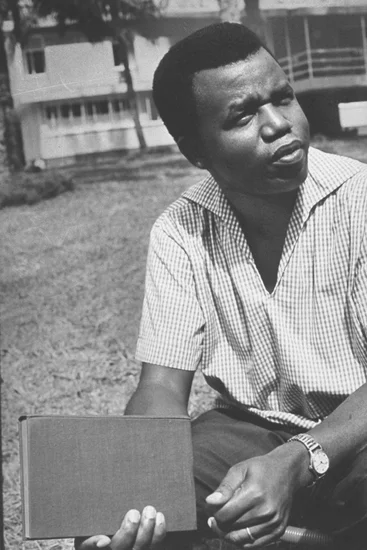
Nigerian novelist, poet, and critic Chinua Achebe was born, destined to become one of Africa’s most celebrated literary voices. His childhood in colonial Nigeria shaped his worldview.
Achebe would later write “Things Fall Apart,” one of the most widely read African novels. His work gave voice to African experiences during the colonial and post-colonial periods.
1922 – José Saramago Born

Portuguese novelist José Saramago was born, later becoming a Nobel Prize laureate in Literature. His early years in rural Portugal influenced his literary sensibilities.
Saramago would develop a distinctive narrative style combining reality with fantastical elements. His novels would explore themes of human nature and social criticism.
1960 – Shigeru Miyamoto Born

Japanese video game designer Shigeru Miyamoto was born, destined to create some of gaming’s most beloved characters. His artistic background influenced his approach to game design.
Miyamoto would create Mario, Link, and other iconic gaming figures. His innovations would transform video games from simple entertainment to sophisticated art forms.
1964 – Diana Krall Born

Canadian singer-songwriter and pianist Diana Krall was born, later becoming one of jazz’s most successful contemporary artists. Her musical training began in childhood.
Krall would blend traditional jazz with contemporary influences to create her signature sound. Her albums would achieve both critical acclaim and commercial success.
1977 – Maggie Gyllenhaal Born

American actress Maggie Gyllenhaal was born, later becoming known for her compelling dramatic performances. Her artistic family background fostered her creative development.
Gyllenhaal would star in critically acclaimed films and television series. Her work would demonstrate remarkable range across different genres and mediums.
1993 – Pete Davidson Born

American comedian and actor Pete Davidson was born, later becoming one of Saturday Night Live’s most recognizable cast members. His early experiences shaped his comedic perspective.
Davidson would develop a distinctive style combining personal vulnerability with sharp humor. His work would resonate with younger audiences seeking authentic entertainment.
Notable Deaths on November 16
1960 – Clark Gable Dies

American actor Clark Gable passed away at age 59, ending one of Hollywood’s most legendary careers. The “King of Hollywood” succumbed to a heart attack.
Gable had defined masculine screen presence for decades through iconic roles. His death marked the end of Hollywood’s golden age of leading men.
1961 – Sam Rayburn Dies
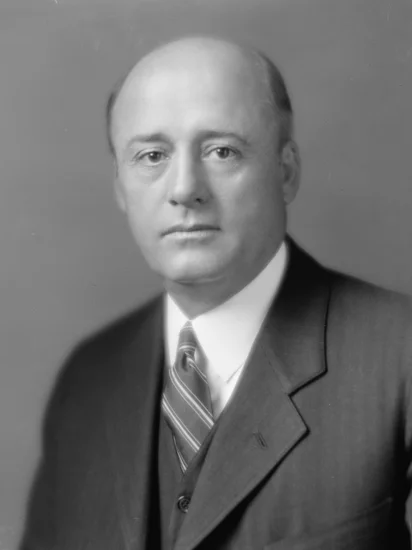
American politician Sam Rayburn died after serving as Speaker of the House for over 17 years. His parliamentary expertise shaped American legislative procedures.
Rayburn wielded enormous influence over Democratic Party politics for decades. His death left a significant leadership void in Congress.
2006 – Milton Friedman Dies

Nobel Prize-winning economist Milton Friedman passed away at age 94, leaving behind revolutionary economic theories. His free-market advocacy influenced global economic policy.
Friedman’s monetarist theories challenged Keynesian economics throughout the 20th century. His ideas would shape conservative economic thinking for generations.
2018 – William Goldman Dies
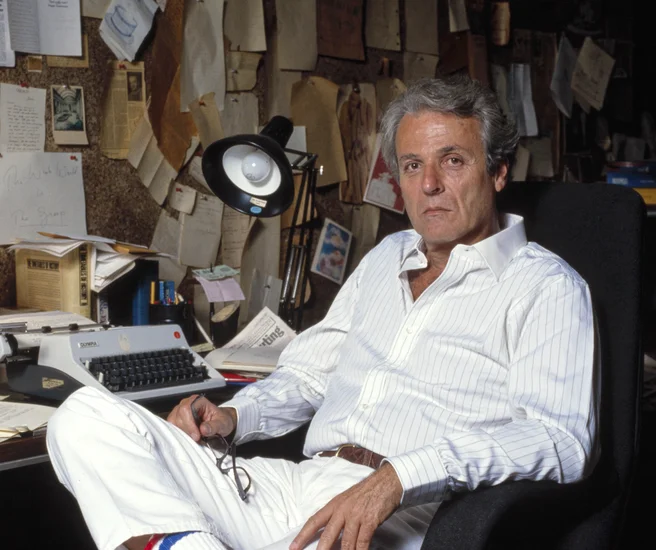
American novelist, playwright, and screenwriter William Goldman died at age 87, concluding a brilliant literary career. His wit and storytelling mastery influenced entertainment.
Goldman wrote “The Princess Bride” and won Academy Awards for screenwriting. His famous observation that “nobody knows anything” became Hollywood legend.
1971 – Edie Sedgwick Dies

American model and actress Edie Sedgwick died at age 28, ending her brief but influential cultural impact. Her association with Andy Warhol made her a 1960s icon.
Sedgwick embodied the glamour and tragedy of the New York art scene. Her death symbolized the dark side of the decade’s cultural revolution.
Holidays and Observances on November 16
International Day for Tolerance

The United Nations observes International Day for Tolerance, promoting understanding and respect among diverse cultures worldwide. Educational institutions organize programs celebrating diversity.
The day emphasizes tolerance as a fundamental human right and foundation for peace. Communities worldwide participate in activities promoting mutual understanding.
Day of Declaration of Sovereignty (Estonia)
Estonia commemorates its 1988 declaration of sovereignty, marking a crucial step toward independence from Soviet rule. The day celebrates Estonian national identity and self-determination.
Estonian communities worldwide honor their country’s peaceful struggle for freedom. The observance reminds citizens of their hard-won democratic achievements.
Icelandic Language Day
Iceland celebrates its unique linguistic heritage through various cultural activities and educational programs. The day promotes preservation of the Icelandic language and literary traditions.
Schools and cultural organizations organize events highlighting Iceland’s rich literary heritage. The celebration strengthens national identity through linguistic pride.
Volkstrauertag (Germany)
Germany observes Volkstrauertag as a day of remembrance for war victims and those who died under tyranny. The solemn observance promotes peace and reconciliation.
Memorial services honor both military casualties and civilian victims of war. The day serves as a reminder of war’s terrible costs and peace’s precious value.
